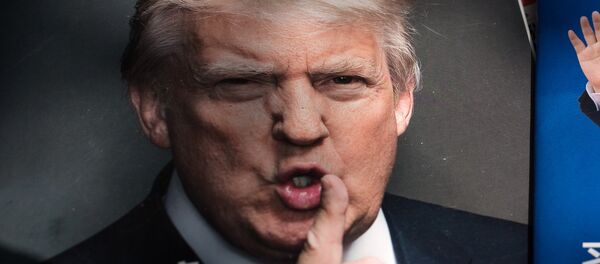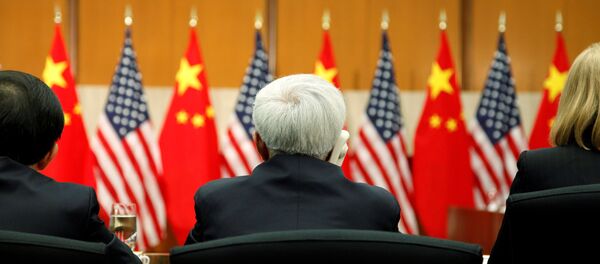Sputnik discussed the statement with Sara Hsu, an Associate Professor of Economics at the State University of New York in New Paltz, NY.
Sara Hsu: I think that it's certainly true. China's economy has been an engine of global growth for a long time, a couple decades at least. So China's slowdown is going to affect exporters who are sending goods to China for China's consumption, it's going to affect importers and many [other] people. So, China's slowdown is going to reduce the entire global rate of growth itself.
Sputnik: To what extent do you think the US line regarding China has factored in to China's economic troubles?
Sputnik: Of course, the Davos forum is marked by the absence of the US delegation; while we know that the US-China trade dispute has been put on hold and of course the entire US-China trade spat has made headlines all throughout past months. What do you see happening in the near future? Can we hope for some sort of a breakthrough in China-US trade differences?
Sara Hsu: I don't really think so. There was no positive outcome from the first round of talks. It was reported that there would be some sort of report coming out of the initial talks, but we haven't heard anything about it. There are also reports that the Trump administration is relatively negative about the ability for the talks to have a positive outcome; in other words, for China to declare that it's going to stop forced technology transfer — and for its part, China doesn't even really see itself as taking part in this — and also for China to reduce the trade surplus which it has tried to do, on one positive note. There're also some other requirements that simply don't appear to be met.
Sputnik: Trump, of course, has called on Beijing — typically, in a tweet — to stop playing around and get a deal, but even then something has to happen, something has to give. And even the first round of US-China talks has to surely bring about some sort of result, don't you think?
Sara Hsu: Yes. China has committed to purchasing more imports from the US and that was really a big factor. Trump seems to see China's trade surplus with the US as a really negative factor, whereas most economists understand that it's not something that is negative, per say. But China has, for its part, agreed to reduce its trade surplus, the difference between its imports of US goods and vice versa. That's a major point for China, but I don't think this is going to be enough per say for the Trump administration.
Another factor that I have mentioned was that Trump is asking China to get rid of its forced technology transfer. China disagrees that they're doing this, that they're engaged in such practices. So, this is the major sticking point; I don't know that this will necessarily be worked out.
Sputnik: Beyond the trade surplus issue that you've mentioned, is there any other logical first step concession that we might see from China?
Sara Hsu: You know, China has agreed previously to lower tariffs on auto imports and other things that are strictly related to trade; I think that China has negotiating power on that part, so maybe increasing imports in particular sectors and some things of that nature. But the major sticking points would be in terms of government policies such as subsidies that favour of particular industries in China, such as Made in China-2025, which promotes China's technology sector, and also the technology transfer issue. Those are going to be major obstacles overcoming this. So, I think China is willing to play around with the technical, specific, data-oriented trade numbers; but when it comes to government policy, I think that Trump's going to have a really hard time getting a deal through.
The views and opinions expressed in this article are solely those of the speakers and do not necessarily reflect Sputnik's position.





